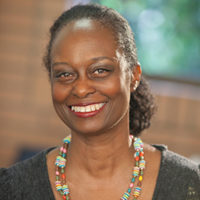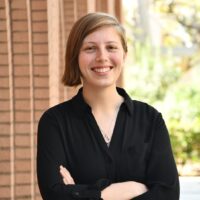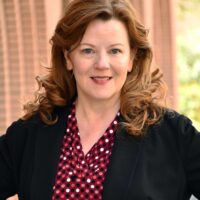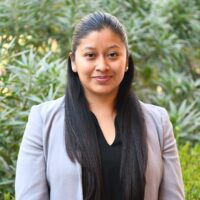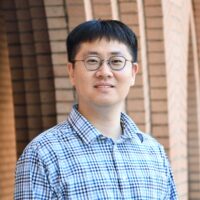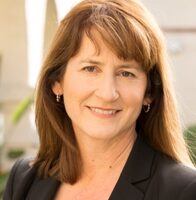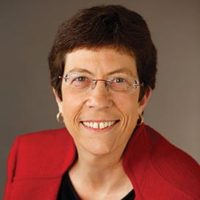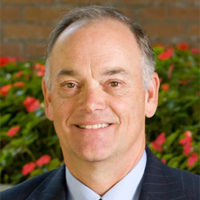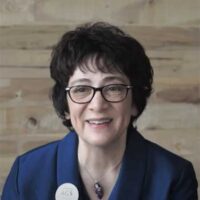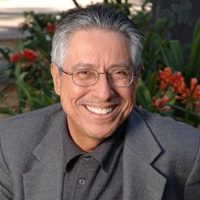People
Faculty
Kathleen Wilber, PhD, LCSW
Kate Wilber is the director of the Secure Old Age lab and co-directs both the USC Family Caregiver Support Center and the National Center on Elder Abuse. Dr. Wilber’s research has focused on improving the quality of life of people with chronic physical and mental health conditions, by improving the formal health and long term care delivery system. Her work on collaborative relationships among providers has examined cost effectiveness and health outcomes of different service delivery structures. This research includes outcomes research for older adults in managed care, the development and evaluation of chronic care models that link acute and long-term care, and the testing and translation of evidence-based long-term care interventions into practice settings.
In addition to health care, Dr. Wilber’s research has focused on protective services including the identification and treatment of elder abuse, adult protective services, guardianship and conservatorship, and alternative supportive and surrogate decision-making approaches. She has authored over 100 articles, books, and book chapters. Dr. Wilber regularly teaches courses in public policy, administration, systems management, and long-term care.
Donna Benton, PhD
Donna Benton, PhD, is a Research Associate Professor of Gerontology at the USC Leonard Davis School of Gerontology. She received her graduate training in clinical psychology from the California School of Professional Psychology and was a Gero-psychological postdoctoral fellow at USC/Rancho Los Amigos Medical Center. Dr. Benton is the Director of the USC Family Caregiver Support Center/ Los Angeles Caregiver Resource Center. She has over 30 years of experience in working with families and the community, to help improve services and support to persons with dementia. She has served as a commissioner on the California Commission on Aging (CCOA) and served as chair of the legislative sub-committee for many years.
Predoctoral Students
Eleanor Batista-Malat, BA
Eleanor Batista-Malat is a doctoral student at the Leonard Davis School of Gerontology. She completed her Bachelor of Arts in Psychology at Earlham College. Eleanor is interested in quality and staffing in adult day services and other home- and community-based services as well as elder abuse prevention and reduction. Prior to joining the Davis School, Eleanor worked as a research coordinator at the Indiana University Center for Aging Research on studies aimed to improve decision making and quality of life for older adults and their caregivers.
Susanna Mage, MA
Susanna (Suzy) Mage is a PhD candidate at the USC Leonard Davis School of Gerontology. She came to USC from New York City after working in the healthcare/pharmaceutical industry for several years. Suzy’s previous educational background was in Environmental Science (Masters, Brown University ’12 & BS, University of Delaware ‘10), but after being her late father’s hospice caregiver, she decided to switch gears and pursue a career in Gerontology, focusing on helping caregivers. Suzy’s current research interests revolve around informal family caregiving dynamics and how the caregiving experience affects one’s financial well-being. Suzy hopes to develop educational interventions for caregivers, especially those belonging to vulnerable populations, such as minorities or those caring for a person living with dementia. She works under the direction of Dr. Kate Wilber in the Secure Old Age Lab and Dr. Donna Benton at the USC Family Caregiver Support Center (FCSC).
Kelly Marnfeldt, MSG
Kelly Marnfeldt is a doctoral candidate at USC’s Leonard Davis School of Gerontology. Her research interests reside at the intersection of vulnerability and autonomy for older people living with dementia who wish to age in place, dementia and Alzheimer’s disease as human rights issues, interventions aimed at elder abuse prevention, and interventions for victims of elder abuse, who may construct the meaning of justice in unconventional ways.
Sheila Salinas Navarro, MPA
Sheila Salinas Navarro is a doctoral candidate at the Leonard Davis School of Gerontology. She completed her Bachelor of Science in Business Administration at California State University, Long Beach in 2016, and her Master of Public Administration at California State University, Long Beach, in 2018. Her research interest is on undocumented older adults and retirement life in the United States. She is currently working under the advisement of Dr. Kathleen Wilber in the Secure Old Age Lab.
Graduate Students
Mengzhao Yan, MA
Mengzhao Yan is a PhD Candidate at the Leonard Davis School of Gerontology of the University of Southern California (USC). He enrolled in the PhD in Gerontology program in 2021 after earning a master’s degree in aging services management at USC. Before coming to the USC Leonard Davis School of Gerontology in 2018, he worked as a researcher and an administrator at Beijing Foreign Studies University in China, where he earned a bachelor’s degree in business administration. He is dedicated to studying how to optimize services, programs, and products to improve older persons’ health and well-being and support them aging in place. He is particularly interested in home modification, long-term care services and support, and minority aging. At the Secure Old Age Lab, he has worked on a variety of projects, including the Comprehensive Older Adult and Caregiver Help (COACH) project, the Connections, Health, Aging and Technology (CHAT) project, and evaluating telehealth utilization in skilled nursing facilities. He holds a California Residential Care Facilities for the Elderly (RCFE) Administrator License. In 2023 and 2024, He serves as a Co-Lead of the International Task Force at the Gerontological Society of America’s Emerging Scholar and Professional Organization.
Former Lab Members
- Elizabeth Avent, PhD (2017- 2022), Postdoc at University of Chicago – LinkedIn
- Jeanine Yonashiro- Cho, MSG (2013-2018): Center for Elder Justice
- Marti DeLiema, PhD (2010-2015): Assistant Professor and Gerontologist, St Paul, Minnesota
- Haley Gallo, (2017-2022): PhD, Researcher at Mathematica
- Gerson Galdamez, PhD: Associate, Fundamental Inc. – LinkedIn
- Zach Gassoumis, PhD, (2007-2014): Assistant Professor at Family Medicine and Gerontology at Keck School of Medicine of USC, Center for Elder Justice
- Julia Margaret Martinez, PhD, MSG, (2010- 2019): Consultant
- Kylie Meyer, PhD, MSc (2015-2018): Postdoctoral Research Fellow, UT Health San Antonio School of Nursing, Caring for the Caregiver
- Adria E. Navarro, PhD, LCSW (2006-2011): Associate Professor, Azusa Pacific University
- Laura Rath, PhD: Senior Program Officer, Archstone Foundation – LinkedIn
- Yongjie Yon, PhD (2013-2017): Technical Officer of Violence and Injury Prevention and Healthy Ageing, World Health Organization – LinkedIn
Other Collaborators
Diana C. Homeier, MD
Diana Homeier is an Associate Professor of Clinical Medicine at the Keck School of Medicine of USC and has a joint appointment as Clinical Associate Professor of Gerontology at the USC Davis School of Gerontology. Dr. Homeier is the director of both the LAC+USC Adult Protection Team and the Los Angeles County Elder Abuse Forensic Center and is Principal Investigator of a National Institute of Justice-funded study to explore forensic markers of physical elder abuse. She is also a practicing geriatric physician.
Laura Mosqueda, MD
Laura Mosqueda, MD, is a professor of Family Medicine and Geriatrics at the Keck School of Medicine of the University of Southern California. She also serves as Associate Dean of Primary Care and Chair of the Department of Family Medicine. She directs the National Center on Elder Abuse which provides information regarding policy, research, training and resources related to neglect and exploitation for policy makers, professional and the public. In 2003, Dr. Mosqueda founded the first Elder Abuse Forensic Center in the United States in an effort to build teams that collaborate across expertise to assist with the evaluation and interventions for complicated cases of suspected elder abuse. Throughout her professional career, she has been involved in extensive research in the field. She is also devoted to the care of older adults by bolstering interprofessional teamwork and enhancing the education of healthcare professional students. While teaching professionals in medicine, criminal justice and social services, she continues to see victims of abuse and neglect in her role as a physician. Dr. Mosqueda has written and lectured extensively on topics in the area of elder care and has been published in top scientific journals and textbooks. She likes cats.
Michael B. Nichol, PhD
Michael B. Nichol, PhD, holds an appointment as Professor of Health Policy at the USC Price School of Public Policy and joint appointments as Professor of Gerontology at the USC Davis School of Gerontology and Professor of Pharmaceutical Economics and Policy in the School of Pharmacy. In addition, he directs the Graduate Health Programs at the USC Price School. Dr. Nichol maintains an active research program enabled by federal and corporate grants. This includes his role as Principal Investigator of a National Institute of Justice-funded project to assess the cost effectiveness of the Elder Abuse Forensic Center model. He has published more than 250 peer-reviewed articles and abstracts on a variety of health topics. He regularly consults for pharmaceutical and health insurance companies, as well as large physician groups within California.
Debra Saliba, MD, MPH, AGSF
Debra Saliba, MD, MPH, AGSF, is a physician with the VA GRECC and serves as the Associate Director for Education for the VA HSR&D Center for the Study of Healthcare Innovation, Implementation and Policy. Dr. Saliba also holds the Anna & Harry Borun Endowed Chair in Geriatrics at UCLA and directs the UCLA/Jewish Home Borun Center for Gerontological Research. She is also a senior natural scientist at RAND and a member of the American Geriatrics Society Board of Directors. A recognized leader in geriatrics research and quality, Dr. Saliba has served as an expert on multiple national advisory panels addressing quality of care for older adults across care settings. Her research has created tools and knowledge that can be applied to improving quality of care and quality of life for vulnerable elders across the care continuum. A major theme of this work has been giving voice to elders in assessments of their health and healthcare, as demonstrated in her development of the VES-13 survey and revision of the Minimum Data Set (MDS 3.0) for nursing homes.
Fernando M. Torres-Gil, PhD, MSW
Fernando Torres-Gil, PhD, MSW, is a Professor of Social Welfare and Public Policy at UCLA, Director of the UCLA Center for Policy Research on Aging, and an Adjunct Professor of Gerontology at USC. His research spans the important topics of health and long-term care, disability, entitlement reform, and the politics of aging. Since its inception in 2005, he has served as the Principal Investigator of the Ford Foundation-funded Latinos & Economic Security project. In addition to his academic pursuits, Professor Torres-Gil has an extensive portfolio of public service. He earned his first presidential appointment in 1978 when President Carter appointed him to the Federal Council on Aging, shortly after which he was selected as a White House Fellow and served as a Special Assistant to the then-Secretary of HEW, Patricia Harris. He was appointed (with Senate Confirmation) by President Clinton as the first-ever U.S. Assistant Secretary on Aging in the U.S. Department of Health and Human Services. In 2010, Professor Torres-Gil received his third presidential appointment (with Senate Confirmation) by President Obama as Vice Chair of the National Council on Disability. He has served in various leadership roles in state and local-level government and continues to provide important leadership in philanthropy and non-profit organizations, including as a board member for AARP.
USC Center for Elder Justice
USC’s Center for Elder Justice brings together the wide-range of solutions, research, expertise, and projects aimed to bring awareness to elder mistreatment and abuse.





